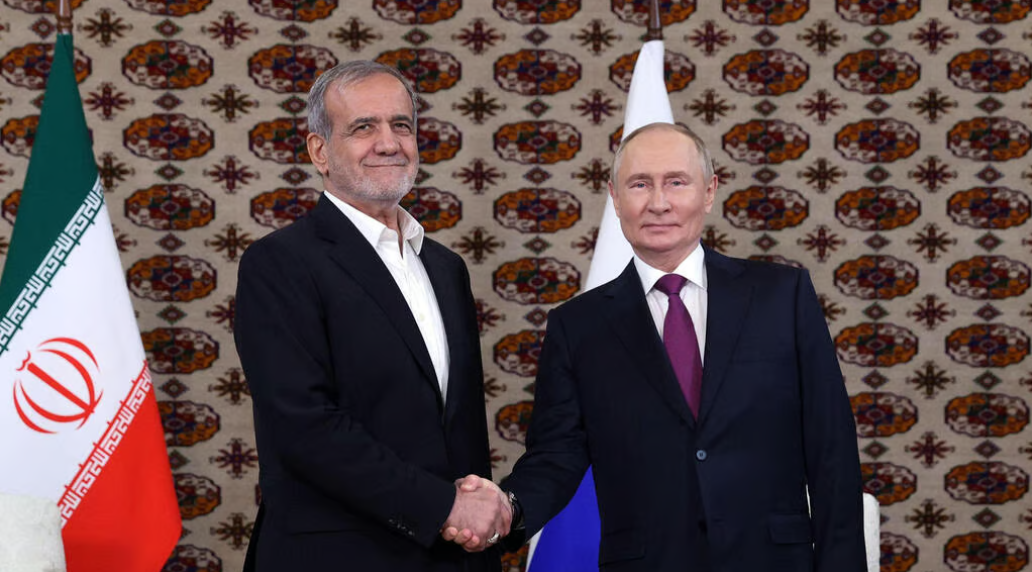Russia and Iran are once again working closely together on the issue of Iran’s nuclear program. Just days before important talks with European countries, Russian President Vladimir Putin spoke with Iranian President Masoud Pezeshkian over the phone. The two leaders discussed how to move forward as Iran prepares to face Britain, France, and Germany in negotiations.

European Nations Prepare to Pressure Iran in Geneva
The talks in Geneva are set to be tense. Britain, France, and Germany often referred to as the E3 have grown frustrated with Iran’s decision to expand its uranium enrichment activities. They warn that if Iran does not return to full compliance with the 2015 nuclear agreement, they may activate the “snapback” mechanism.

This mechanism would bring back United Nations sanctions that were lifted when the original nuclear deal was signed. For Iran, such sanctions would add more economic difficulties at a time when the country is already facing inflation and trade restrictions.
Russia, however, has strongly opposed the idea of snapback sanctions. According to Moscow, such measures will only create more instability and close the door to dialogue.
Strategic Partnership Between Moscow and Tehran
Beyond nuclear issues, Russia and Iran have been moving closer in recent years. Earlier this year, they signed a Comprehensive Strategic Partnership Treaty that covers cooperation in defense, energy, cybersecurity, and trade.
This treaty means the two nations are committed to working together for at least the next two decades. For Iran, this partnership provides valuable allies in a world where it often faces isolation from the West. For Russia, Iran represents a strong partner in the Middle East, especially as Moscow continues to face its own tensions with Europe and the United States.
The nuclear issue is not just about diplomacy it also ties into regional security. Israel, for example, has strongly opposed Iran’s nuclear activities and even carried out strikes against Iranian-linked targets earlier this year.
For ordinary Iranians, the outcome of these talks could mean the difference between economic hardship and the possibility of limited relief.


 Russia Condemns US Military Intervention Threat in Iran
Russia Condemns US Military Intervention Threat in Iran  Iran Warns “We Are Ready for War” as Crackdown on Protests Intensifies
Iran Warns “We Are Ready for War” as Crackdown on Protests Intensifies  US Energy Secretary Chris Wright Warns North Korea and Iran After Tanker Seizure
US Energy Secretary Chris Wright Warns North Korea and Iran After Tanker Seizure  Ukrainian Findings Suggest Cracks in Russian Military Morale
Ukrainian Findings Suggest Cracks in Russian Military Morale  Ukraine Targets Russian Logistics in New Year’s Eve Strikes on Occupied Territories
Ukraine Targets Russian Logistics in New Year’s Eve Strikes on Occupied Territories  Russia Deploys Nuclear-Capable Hypersonic Oreshnik Missiles in Belarus
Russia Deploys Nuclear-Capable Hypersonic Oreshnik Missiles in Belarus